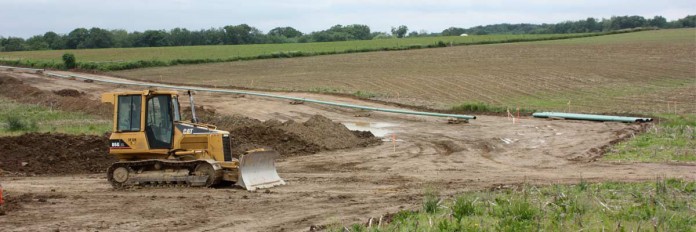WOOSTER, Ohio – Growers wondering what impact, if any, natural gas pipelines will have on crop productivity in their fields can sign up for a research project being conducted by researchers with the College of Food, Agricultural, and Environmental Sciences at The Ohio State University.
Steve Culman, an Ohio State University Extension specialist in soil fertility, is starting a pilot study to document the effects of pipeline installations on crop productivity over several years.
Seeking farmers
The project, still in its beginning stages, needs to work with at least 20 to 30 farmers with pipelines in their fields over a period of three to five years.
The goal is to compare crop productivity in areas disturbed by pipeline installation versus those adjacent areas that are not disturbed by pipelines, Culman said.
“Because there is very little documented research on these installations, the project will have to involve documenting a baseline of soil to be able to compare soil properties and yield maps between installation area and adjacent area,” he said.
Growers who want to take part in the study will need to identify and reference by GPS, one or more paired areas on their farms. These paired areas should be as similar as possible in terms of productivity, soil type, slope, tile, drainage or organic matter, for example.
Yield maps
They also need to supply yield map files from the 2015 harvest in these areas, with a preference for those who have yield maps from several previous years. They’ll also need to sample baseline soils in these areas this fall, after harvest, but prior to pipeline installation.
And growers will need to be committed to sample soils and crop tissue from these areas, and share yield maps from the areas every year during the study period.
Growers interested in participating in the research project can contact Culman at 330-263-3787 or culman.2@osu.edu.










